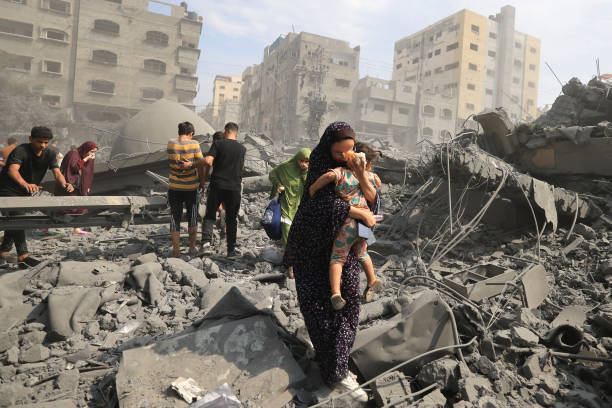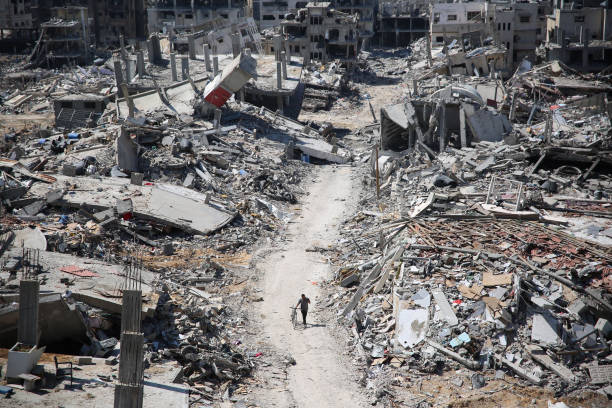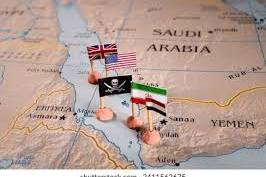
Israel Gaza Ceasefire Crackdown

In a significant escalation, Israeli forces launched extensive airstrikes on the Gaza Strip, shattering a ceasefire that had been in place since January. The attacks resulted in over 50,000 Palestinian deaths, with tens of thousand more wounded, marking one of the deadliest episodes in recent times.

Ceasefire Breakdown and Military Actions
Ceasefire Breakdown and Military Actions
The Israeli government justified the offensive by accusing Hamas of failing to release Israeli hostages and obstructing negotiation progress. Prime Minister Benjamin Netanyahu stated that the military actions were necessary due to Hamas’s repeated refusals to comply with agreements made in January. The airstrikes targeted various locations, including Gaza City, Deir al-Balah, Khan Younis, and Rafah, catching many residents off guard during the holy month of Ramadan.

Humanitarian Impact and Casualties
The Gaza Health Ministry reported that the majority of casualties were women and children, exacerbating the already dire humanitarian situation in the region. The United Nations expressed horror at the situation, highlighting the severe impact on civilians and infrastructure. The extensive damage to schools, hospitals, mosques, churches, and refugee camps has further strained the limited resources available to aid the affected population.
International Reactions and Condemnations
The international community reacted swiftly, with countries like Egypt, Kuwait, France, and Turkey condemning the attacks and calling for an immediate ceasefire and the resumption of humanitarian aid. Russia denounced the bombings as the beginning of a new spiral of tension in the Middle East, expressing concern over the escalation and the high number of civilian casualties. The United Nations and various global leaders criticized the attacks, citing breaches of international law and the need for renewed peace efforts.

Domestic Political Developments in Israel
Domestically, the situation in Israel is marked by political shifts. Far-right minister Itamar Ben-Gvir rejoined Netanyahu’s government, strengthening its parliamentary majority amid the ongoing conflict. Additionally, Netanyahu’s decision to dismiss Ronen Bar, the head of the Shin Bet intelligence agency, has sparked internal criticism and warnings of illegality from the Attorney General, Gali Baharav-Miara. These internal tensions have led to protests in Jerusalem and Tel Aviv, reflecting the deepening political crisis within the country.
Outlook and Calls for Restraint
The resumption of large-scale hostilities raises concerns about a full-scale war and further destabilization in the region. The international community continues to call for restraint, the protection of civilians, and the pursuit of diplomatic solutions to prevent further loss of life and to address the underlying issues fueling the conflict.











https://mazda-demio.ru/forums/index.php?autocom=gallery&req=si&img=6340
https://vitz.ru/forums/index.php?autocom=gallery&req=si&img=5036
https://mazda-demio.ru/forums/index.php?autocom=gallery&req=si&img=6599
http://terios2.ru/forums/index.php?autocom=gallery&req=si&img=4828
https://mazda-demio.ru/forums/index.php?autocom=gallery&req=si&img=6389
https://honda-fit.ru/forums/index.php?autocom=gallery&req=si&img=7088
https://vitz.ru/forums/index.php?autocom=gallery&req=si&img=4999
https://myteana.ru/forums/index.php?autocom=gallery&req=si&img=6817
https://vitz.ru/forums/index.php?autocom=gallery&req=si&img=5031
https://mazda-demio.ru/forums/index.php?autocom=gallery&req=si&img=6550
http://wish-club.ru/forums/index.php?autocom=gallery&req=si&img=5397
http://wish-club.ru/forums/index.php?autocom=gallery&req=si&img=5396
https://myteana.ru/forums/index.php?autocom=gallery&req=si&img=6806
https://honda-fit.ru/forums/index.php?autocom=gallery&req=si&img=7232
https://myteana.ru/forums/index.php?autocom=gallery&req=si&img=6685
https://mazda-demio.ru/forums/index.php?autocom=gallery&req=si&img=6435
Jony – Френдзона скачать бесплатно mp3 и слушать онлайн https://shorturl.fm/NER2A
Jony – Комета скачать mp3 и слушать онлайн https://shorturl.fm/1B1sx
Xcho – Лондон скачать mp3 и слушать онлайн https://shorturl.fm/ODS6J
Шпильки – Сам Ты Наташа ( 2005 ) скачать песню в mp3 и слушать онлайн https://shorturl.fm/g26nX
Липа – Я люблю твой запах скачать песню на телефон и слушать бесплатно https://shorturl.fm/0u43s
https://mazda-demio.ru/forums/index.php?autocom=gallery&req=si&img=6585
https://myteana.ru/forums/index.php?autocom=gallery&req=si&img=6879
https://hrv-club.ru/forums/index.php?autocom=gallery&req=si&img=6882
https://vitz.ru/forums/index.php?autocom=gallery&req=si&img=5106
Opium – Чужая невеста скачать песню в mp3 и слушать онлайн https://shorturl.fm/niwsv
https://myteana.ru/forums/index.php?autocom=gallery&req=si&img=6650
http://wish-club.ru/forums/index.php?autocom=gallery&req=si&img=5247
Мари Краймбрери – Пряталась в ванной скачать песню бесплатно в mp3 и слушать онлайн https://shorturl.fm/uwAlH
http://toyota-porte.ru/forums/index.php?autocom=gallery&req=si&img=3292
https://myteana.ru/forums/index.php?autocom=gallery&req=si&img=6724
Anivar – Не молчи скачать песню в mp3 и слушать онлайн https://shorturl.fm/Vm1F2
ST – Луи Луи скачать и слушать онлайн https://shorturl.fm/h6Fnv
https://vitz.ru/forums/index.php?autocom=gallery&req=si&img=5016
https://vitz.ru/forums/index.php?autocom=gallery&req=si&img=4853
https://vitz.ru/forums/index.php?autocom=gallery&req=si&img=4966
Сергей Одинцов – Серо – Дождливые Дни скачать mp3 и слушать бесплатно https://shorturl.fm/pQu48
https://mazda-demio.ru/forums/index.php?autocom=gallery&req=si&img=6595
Элипс – Звездопад скачать песню и слушать бесплатно https://shorturl.fm/tRl58
Мафик – Второгодник скачать песню и слушать бесплатно https://shorturl.fm/JIL1K
https://hrv-club.ru/forums/index.php?autocom=gallery&req=si&img=6901
https://hrv-club.ru/forums/index.php?autocom=gallery&req=si&img=6985
https://mazda-demio.ru/forums/index.php?autocom=gallery&req=si&img=6564
LetAna – Крепче скачать и слушать онлайн https://shorturl.fm/MTcGG
https://myteana.ru/forums/index.php?autocom=gallery&req=si&img=6860
https://hrv-club.ru/forums/index.php?autocom=gallery&req=si&img=6979
Сергей Дубровин – Ненаглядная Моя скачать и слушать песню https://shorturl.fm/TFNk8
Дима Вебер – Виновата Текила скачать песню на телефон и слушать бесплатно https://shorturl.fm/m92Ll
http://wish-club.ru/forums/index.php?autocom=gallery&req=si&img=5421
Трио Акм – Вы Мне Не Говорите скачать и слушать mp3 https://shorturl.fm/MX4cT
http://wish-club.ru/forums/index.php?autocom=gallery&req=si&img=5344
http://wish-club.ru/forums/index.php?autocom=gallery&req=si&img=5403
Mary Gu – Не влюбляйся скачать песню и слушать онлайн
https://allmp3.pro/2552-mary-gu-ne-vljubljajsja.html
U3U – Запомним скачать песню и слушать онлайн
https://allmp3.pro/2831-u3u-zapomnim.html
Александр Барыкин – Натали скачать песню и слушать онлайн
https://allmp3.pro/2461-aleksandr-barykin-natali.html
Бурановские бабушки и Марк Тишман – Пьяные, счастливые скачать песню и слушать онлайн
https://allmp3.pro/2608-buranovskie-babushki-i-mark-tishman-pjanye-schastlivye.html
Alex Coffman Feat. & Paperwhale – Как Было Бы Здорово скачать песню и слушать онлайн
https://allmp3.pro/2858-alex-coffman-feat-paperwhale-kak-bylo-by-zdorovo.html
Мари Краймбрери – Какая Крутая Жизнь скачать песню и слушать онлайн
https://allmp3.pro/2974-mari-krajmbreri-kakaja-krutaja-zhizn.html
Clover-99 – Мам, Прости скачать песню и слушать онлайн
https://allmp3.pro/3000-clover-99-mam-prosti.html
Зомб – Панацея скачать песню и слушать онлайн
https://allmp3.pro/2730-zomb-panaceja.html
mezki4
8blb49
zh1bc0
3wud82
wjoy54
5v8asa
98n0s5
1voyid
34gwgr
04834r
very nice post, i certainly love this website, carry on it
https://t.me/s/Top_BestCasino/128
Aw, this was a really nice post. In thought I would like to put in writing like this additionally – taking time and precise effort to make a very good article… but what can I say… I procrastinate alot and by no means appear to get something done.
Tuy chỉ mới xuất hiện trên bản đồ cá cược, tải 888slot app nhưng nơi đây đã đặt ra sứ mệnh táo bạo: “Mang đến trải nghiệm cá cược công bằng, hiện đại và đậm chất cá nhân hóa cho người chơi toàn cầu”. TONY12-15
Nhà cái cá cược tải 888slot app chính thức ra mắt vào năm 2019 và bằng sự nỗ lực của mình đã nhanh chóng ghi dấu ấn trong lĩnh vực giải trí online. Tuy còn gặp nhiều thử thách trong thời gian đầu thành lập, nhưng thương hiệu vẫn thành công chứng minh tầm quan trọng của mình trong mắt người dùng. Đến nay, đơn vị đã ghi nhận hàng triệu lượt đăng ký mới mỗi ngày và con số vẫn không ngừng tăng lên chóng mặt. TONY12-16
Whats Happening i’m new to this, I stumbled upon this I have discovered It positively useful and it has helped me out loads. I hope to give a contribution & help other customers like its helped me. Good job.
Thực tế cho thấy, các vấn đề về giao dịch tại 888slot com rất hiếm khi xảy ra. Theo thống kê, tỷ lệ giao dịch có vấn đề chỉ chiếm chưa đầy 0.5%, thấp hơn đáng kể so với mức trung bình ngành là 2-3%. TONY12-19
Thực tế cho thấy, các vấn đề về giao dịch tại 888slot com rất hiếm khi xảy ra. Theo thống kê, tỷ lệ giao dịch có vấn đề chỉ chiếm chưa đầy 0.5%, thấp hơn đáng kể so với mức trung bình ngành là 2-3%. TONY12-19
Can you be more specific about the content of your article? After reading it, I still have some doubts. Hope you can help me.
Pretty! This was a really wonderful post. Thank you for your provided information.
I simply couldn’t depart your website prior to suggesting that I actually enjoyed the usual info a person provide in your visitors? Is going to be again continuously in order to check out new posts.
Terrific work! This is the type of info that should be shared around the internet. Shame on the search engines for not positioning this post higher! Come on over and visit my web site . Thanks =)
What¦s Taking place i’m new to this, I stumbled upon this I’ve found It positively helpful and it has helped me out loads. I’m hoping to give a contribution & help other customers like its helped me. Great job.
Đội ngũ kỹ thuật của 888slot luôn túc trực để đảm bảo đường link truy cập ổn định, không bị giật lag trong những giờ cao điểm. TONY01-04H
telegram 888slot là lựa chọn hàng đầu cho những nhà đầu tư thông thái nhờ hệ thống kèo cược đa dạng và tỷ lệ thưởng hấp dẫn. TONY01-06S
888slot cam kết xử lý khiếu nại trong 2 giờ – minh bạch, nhanh chóng, tôn trọng khách hàng. TONY01-06H
I have not checked in here for some time as I thought it was getting boring, but the last few posts are great quality so I guess I?¦ll add you back to my everyday bloglist. You deserve it my friend 🙂
I have read some just right stuff here. Definitely worth bookmarking for revisiting. I wonder how a lot effort you set to create such a magnificent informative site.
Thank you for your sharing. I am worried that I lack creative ideas. It is your article that makes me full of hope. Thank you. But, I have a question, can you help me?
Great post, you have pointed out some great details , I also think this s a very superb website.
Thank you for your sharing. I am worried that I lack creative ideas. It is your article that makes me full of hope. Thank you. But, I have a question, can you help me? https://www.binance.com/register?ref=IXBIAFVY